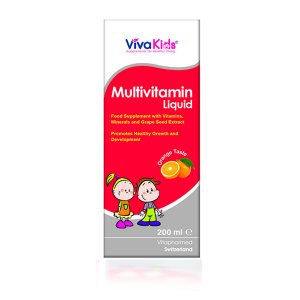Introduction
Malnutrition is a serious condition that occurs when a person’s diet doesn't contain the right amount of nutrients.
Malnutrition means "poor nutrition" and can refer to:
- undernutrition – when you don't get enough nutrients
- overnutrition – when you get more nutrients than you need
This topic focuses on undernutrition. See obesity for more information about the main problems associated with overnutrition.
Who's affected by malnutrition?
Malnutrition is a common health problem. There are an estimated 3 million malnourished people in the UK at any time, with many more at risk of becoming malnourished.
Around one in three people admitted to hospital or care homes in the UK are found to be malnourished or at risk of malnourishment.
Malnutrition is caused by having an inadequate diet or a problem absorbing nutrients from food. There are many reasons why these might happen, including having reduced mobility, a long-term health condition, or a low income.
Signs of malnutrition
The most common symptom of undernutrition is unintentional weight loss (losing 5-10% or more of your body weight over three to six months).
Other signs can include:
- weak muscles
- feeling tired all the time
- low mood
- an increase in illnesses or infections
The main sign of overnutrition is being overweight or obese. However, people with undernutrition can also be overweight if they eat a diet high in energy (calories), but low in other nutrients.
Signs of malnutrition in children can include failure to grow at the expected rate and changes in behaviour, such as appearing unusually irritable, sluggish or anxious.
Your child’s weight and physical development should be regularly assessed by your GP when your child is young. Speak to your GP or health visitor if you have any concerns about your child’s health or development.
When to see your GP
See your GP if your body mass index (BMI) is lower than 18.5 or you notice the above symptoms.
BMI is a measure of whether you're a healthy weight for your height. You can use the BMI healthy weight chart to work out your BMI.
You should visit your GP if you believe you or someone you care for is at risk of malnutrition. They can check for signs of malnourishment and any conditions that may cause malnutrition.
Treating malnutrition
Depending on what's caused a person to become malnourished and how severe it is, treatment may be carried out at home or in hospital.
Dietary changes are the main treatment for malnutrition. If you're undernourished, you may need to increase the nutritional content of your food, with or without taking nutritional supplements.
If you're unable to eat enough to meet your nutritional needs you may need:
- a feeding tube to provide nutrients directly into your digestive system
- a drip to provide nutrients and fluids directly into a vein
Preventing malnutrition
The best way to prevent malnutrition is to eat a healthy, balanced diet.
A healthy, balanced diet is vital for maintaining health and fitness. To stay healthy, you need to eat a variety of foods from the four main food groups including:
- plenty of fruit and vegetables
- plenty of bread, rice, potatoes, pasta and other starchy foods
- some milk and dairy foods
- some meat, fish, eggs, beans and other non dairy sources of protein
The eatwell guide shows the different types of food you need to eat (and in what proportions) to maintain a well-balanced and healthy diet.
Symptoms
The most common symptom of malnutrition is unplanned and unexplained weight loss.
Adults
If you lose 5-10% or more of your body weight within three to six months and you're not trying to lose weight, it could be a sign that you're at risk of malnourishment.
Sometimes, weight loss isn't obvious because it occurs slowly, over time. You may notice that your clothes, belts and jewellery gradually feel looser.
Other signs of malnutrition may include:
- feeling tired all the time and lacking energy
- frequently getting infections
- taking a long time to recover from infections
- delayed wound healing
- poor concentration
- difficulty keeping warm
- depression
A good way of assessing whether you're malnourished is to work out your body mass index (BMI). BMI is a measurement that shows whether you're a healthy weight for your height.
For most adults a healthy BMI is between 18.5 and 24.9. Having a BMI under 18.5 could suggest you're at a high risk of being malnourished, although you may also be considered at risk if you have a BMI between 18.5 and 20.
It's important to note that BMI and weight loss aren't the only indicators of malnutrition. A person can be overweight or obese and still be malnourished. This can be due to having a diet consisting of food and drink that's high in fat and sugar but low in essential vitamins and minerals.
When to see your GP
See your GP if your BMI is lower than 18.5, you've lost more than 5-10% of your body weight over the last three to six months, or you experience the symptoms listed above.
Children
Symptoms of malnutrition in children can include:
- failure to grow at the expected rate, both in terms of weight and height (known as "failure to thrive")
- changes in behaviour, such as being unusually irritable, sluggish or anxious
- changes in hair and skin colour
When to see your GP
Your child’s weight and physical development should be regularly assessed by your GP or a health visitor during your child's first few years of life.
Contact your GP if you have any concerns about your child’s health or development.
Causes
Malnutrition is caused by a lack of nutrients in your diet.
This is either due to an inadequate diet or problems absorbing nutrients from food.
Medical conditions
Medical conditions that can lead to malnutrition include:
- a condition that causes a lack of appetite, such as cancer, liver disease, persistent pain or nausea
- a mental health condition, such as depression or schizophrenia, which may affect your ability to look after yourself
- a health condition that requires frequent hospital admissions
- a health condition that disrupts your body’s ability to digest food or absorb nutrients, such as Crohn's disease or ulcerative colitis
- dementia – people with dementia may be unable to communicate their needs when it comes to eating
- dysphagia – a condition that makes swallowing difficult or painful
- persistent vomiting or diarrhoea
- an eating disorder, such as anorexia nervosa
Some types of medication may increase your risk of developing malnutrition. More than 250 types of medicine are known to disrupt the body’s ability to absorb and then break down nutrients.
You may also be at risk of becoming malnourished if your body has an increased demand for energy – for example, if it's trying to heal itself after major surgery, or a serious injury such as a burn, or if you experience involuntary movements, such as a tremor.
Physical factors
Physical factors can also contribute to malnutrition. For example:
- if your teeth are in a poor condition, or if dentures don't fit properly, eating can be difficult or painful
- you may lose your appetite as a result of losing your sense of smell and taste
- you may have a physical disability or other impairment that makes it difficult for you to cook or shop for food yourself
Social factors
Social situations that can contribute to malnutrition include:
- living alone and being socially isolated
- having limited knowledge about nutrition or cooking
- reduced mobility
- alcohol or drug dependency
- low income or poverty
Children
In the UK, the most common causes of malnutrition in children are long-term health conditions that:
- cause lack of appetite
- disrupt the normal process of digestion
- cause the body to have an increased demand for energy
Examples of these types of conditions include childhood cancers, congenital heart disease, cystic fibrosis and cerebral palsy.
In the UK, malnutrition as a result of inadequate food intake is rare, although it may occur if a child is neglected, living in poverty or being abused. If you're concerned that a child may be at risk of neglect or abuse, call the NSPCC child protection helpline on 0808 800 5000.
Sometimes, children become malnourished because they avoid eating due to issues with their body image.







